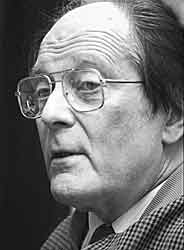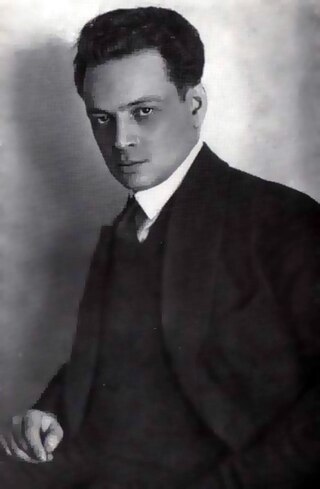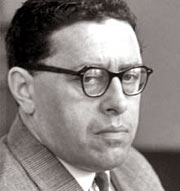Related Research Articles

Ivan Sergeyevich Turgenev was a Russian novelist, short story writer, poet, playwright, translator and popularizer of Russian literature in the West.

Konstantine Gamsakhurdia was a Georgian writer and public figure. Educated and first published in Germany, he married Western European influences to purely Georgian thematic to produce his best works, such as The Right Hand of the Grand Master and David the Builder. Hostile to the Soviet rule, he was, nevertheless, one of the few leading Georgian writers to have survived the Stalin-era repressions, including his exile to a White Sea island and several arrests. His works are noted for their character portrayals of great psychological insight. Another major feature of Gamsakhurdia's writings is a new subtlety he infused into Georgian diction, imitating an archaic language to create a sense of classicism.

Jaan Kross was an Estonian writer. He won the 1995 International Nonino Prize in Italy.
Andrei Platonovich Platonov was a Soviet Russian novelist, short story writer, philosopher, playwright, and poet. Although Platonov regarded himself as a communist, his principal works remained unpublished in his lifetime because of their skeptical attitude toward collectivization of agriculture (1929–1940) and other Stalinist policies, as well as for their experimental, avant-garde form infused with existentialism. His famous works include the novels Chevengur (1928) and The Foundation Pit (1930).

Andrei Donatovich Sinyavsky was a Russian writer and Soviet dissident known as a defendant in the Sinyavsky–Daniel trial of 1965.

Franz Carl Heimito, Ritter von Doderer, known as Heimito von Doderer, was an Austrian writer.

Yury Nikolaevich Tynyanov was a Soviet writer, literary critic, translator, scholar and screenwriter. He was an authority on Pushkin and an important member of the Russian Formalist school.

The culture of the Soviet Union passed through several stages during the country's 69-year existence. It was contributed to by people of various nationalities from every one of fifteen union republics, although the majority of the influence was made by the Russians. The Soviet state supported cultural institutions, but also carried out strict censorship.

Anatoly Vasilievich Kuznetsov was a Russian-language Soviet writer who described his experiences in German-occupied Kiev during World War II in his internationally acclaimed novel Babi Yar: A Document in the Form of a Novel. The book was originally published in a censored form in 1966 in the Russian language.

Kuzma Sergeevich Petrov-Vodkin, was a Russian and Soviet painter. His early iconographic work used special creative effects based on the curve of the globe, but its images were considered blasphemous by the Russian Orthodox Church. However he went on to become the first president of the Leningrad Union of Soviet Artists. His autobiographical writings attracted much praise, and have enjoyed a later revival.

Yury Valentinovich Trifonov was a leading representative of the so-called Soviet "Urban Prose". He was considered a close contender for the Nobel Prize for Literature in 1981.
Proletarian literature refers here to the literature created by left-wing writers mainly for the class-conscious proletariat. Though the Encyclopædia Britannica states that because it "is essentially an intended device of revolution", it is therefore often published by the Communist Party or left wing sympathizers, the proletarian novel has also been categorized without any emphasis on revolution, as a novel "about the working classes and working-class life; perhaps with the intention of making propaganda". This different emphasis may reflect a difference between Russian, American and other traditions of working-class writing, with that of Britain. The British tradition was not especially inspired by the Communist Party, but had its roots in the Chartist movement, and socialism, amongst others. Furthermore, writing about the British working-class writers, H Gustav Klaus, in The Socialist Novel: Towards the Recovery of a Tradition (1982) suggested that "the once current [term] 'proletarian' is, internationally, on the retreat, while the competing concepts of 'working-class' and 'socialist' continue to command about equal adherence".

David Vogel was a Ukrainian-born Jewish poet, novelist, and diarist.

Gurgen Mahari was an Armenian writer and poet. His most significant works include the semi-autobiographical novella Barbed Wires in Blossom (1968) and the novel Burning Orchards (1966), which is set in the writer's hometown of Van on the eve of the Armenian genocide.
Souvenirs d'enfance is a series of autobiographical novels by French filmmaker and académicien, Marcel Pagnol (1895–1974). Souvenirs d'enfance comprises four volumes covering the years from his birth in 1895 to about 1910, which were spent in Marseille, with family summer holidays in La Treille, about ten kilometres away. The four volumes in order are La Gloire de mon père ; Le Château de ma mère ; Le Temps des secrets ; and Le Temps des amours. The first two were published in 1957, the third in 1960, and the fourth, which was unfinished, was published posthumously in 1977. The first two were made into films, directed by Yves Robert.

Vikenty Vikentyevich Smidovich, better known by his pen name Vikenty Vikentyevich Veresaev, was a Russian and Soviet writer, translator and medical doctor of Polish descent.
Margaret Butterworth Wettlin was an American-born Soviet memoirist and translator, best known for her translations of Russian literature. While living in Russia, she was forced into spying for its secret service.
Taking Stock is a 1970 novel by Yury Trifonov. It is the second volume of his Moscow quintet.
The Long Good-Bye is a 1971 novel by Yury Trifonov. It is the third of five volumes in his Moscow cycle.
Razia Sajjad Zaheer was an Indian writer in the Urdu language, a translator, and a prominent member of the Progressive Writers Association. She won the Uttar Pradesh Sahitya Akademi Award as well as the Soviet Land Nehru Award.
References
- ↑ McLaughlin, Sigrid (1988). "A Moment in the History of Consciousness of the Soviet Intelligentsia: Trifonov's Novel "Disappearance"". Studies in Comparative Communism. 21 (3/4): 303–311. ISSN 0039-3592.
- ↑ Josephine Woll Invented Truth: Soviet Reality and the Literary Imagination of Iurii Trifonov.- 1991 - 0822311518 "Trifonov, who had never been an open dissident, was a likely candidate. The chain ... The seventh was published years later, as was the novella The Disappearance."
- ↑ R. Marsh - 1995 History and Literature in Contemporary Russia - Page 55 0230377793 One of the first works on this theme to appear was Yurii Trifonov's posthumously published novel Disappearance (1987), begun in the early 1960s and left unfinished at the time of his death, which investigates the psychological effect of the ...
- ↑ Evgeny Dobrenko, Marina Balina - The Cambridge Companion to Twentieth-Century Russian Literature 0521875358 2011 In Disappearance, Trifonov's most autobiographical novel, there is no place for revolutionary illusions and rosy ideals. The recollections of Igor Baiukov (nicknamed 'Gorik') about his repressed family are central to the narrative.